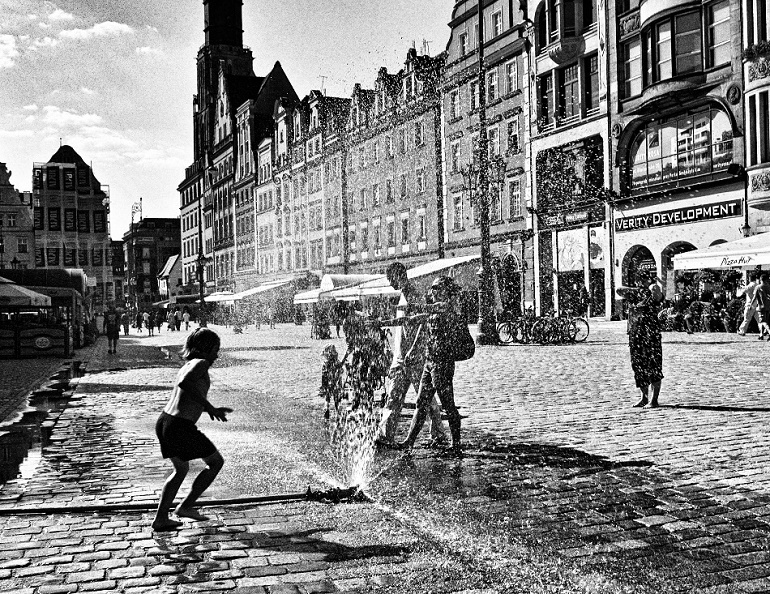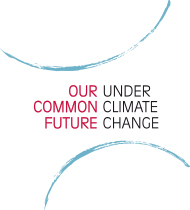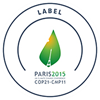�
Our Common Future Under Climate Change
International Scientific Conference 7-10 JULY 2015 Paris, France

Play! by Olgierd Rudak
White roads and parks: Practical urban climate solutions
201507-17
By Arnaud F�che
There is not a single way to fight climate change, but there are many complementary practical answers. All fields of knowledge seem to be gathering here in Paris, united to develop models for a sustainable future, both in rural and urban environments.
Why is that encouraging? The diversity of solutions available to us reflects the saying "think global, act local". We are all working to achieve the same goal, using different tools according to the local contexts, the means at disposal and the local goals.
As a landscape architect, it is precisely this diversity that I am interested in and above all, how they interact with one another � and one might be surprised by the links that can be drawn from such diverse fields.
During a conference session on rural and urban areas, six speakers from various backgrounds covered an impressively large field of knowledge - from engineering considerations and economics to models and solutions design.
Three quarters of the population is likely going to live in urban areas by 2050 and cities are developing, on a spatial scale, mostly through a sprawling movement. The economy of space will dictate that we need to increase urban density and improve what we already have, rather than building something better next to it.
In the face of climate change, these urban developments will face many challenges, one of which will be heat.
According to the US Environmental Protection Agency, the annual mean air temperature of a city with 1 million people or more can be 1�3�C warmer than its surroundings. These urban heat islands often increase energy demand, air conditioning costs, air pollution and greenhouse gas emissions, heat-related illness and water quality.
There are a number of interesting solutions involving social, economic and physical sciences. Take cool surfaces and vegetation as two examples.
By painting streets and roofs white instead of black and increasing the number of plants in cities, temperatures in packed urban areas can drop by at least 7 degrees Celsius.�
The social science at play here is reimagining people�s idea of what color the ground or roof could be and giving them a vision of an urban space that still connects them to nature. The physical science underpins the way in which the paint pigments and plants store energy and heat, while the economics shows that it is just as cheap to paint roofs white, as it is to make them black.
The landscape architect in me loves these practical and visible solutions. And the PhD candidate in me loves the study and research of solutions. Both agree that theoretical problem solving without application is pointless, and so is building without preliminary study.
We need cooperation between all fields of research, but also between all the people who are involved in rural and urban planning. One cannot find a practical solution without the appropriate research and/or scoping to show the right direction. More research is always needed � not for the sake of research itself, but for the sake of accurate and relevant practical solutions for a sustainable future.
One does not need to be a rocket scientist � or a landscape architect � to help in developing rural and sustainable environments. All these prolific studies lead to tons of solutions to solve one huge problem, climate change. And each and every one of us can therefore play a part in this, may it be as modest as painting one's roof white. �
Arnaud F�che is trained as an engineer & landscape architecture designer. He is currently working as a freelance landscape architect in Nantes, France and is a PhD candidate (civilisation, landscape architecture & urban agriculture) with University of Nantes. Arnaud is a volunteer social reporter at the #CFCC15 conference.�
This is part of a blog series written by volunteer social reporters profiling climate scientists, economists, social scientists and civil society members who are presenting and discussing innovative climate science at Our Common Future. For more follow and #CFCC15 on Twitter



